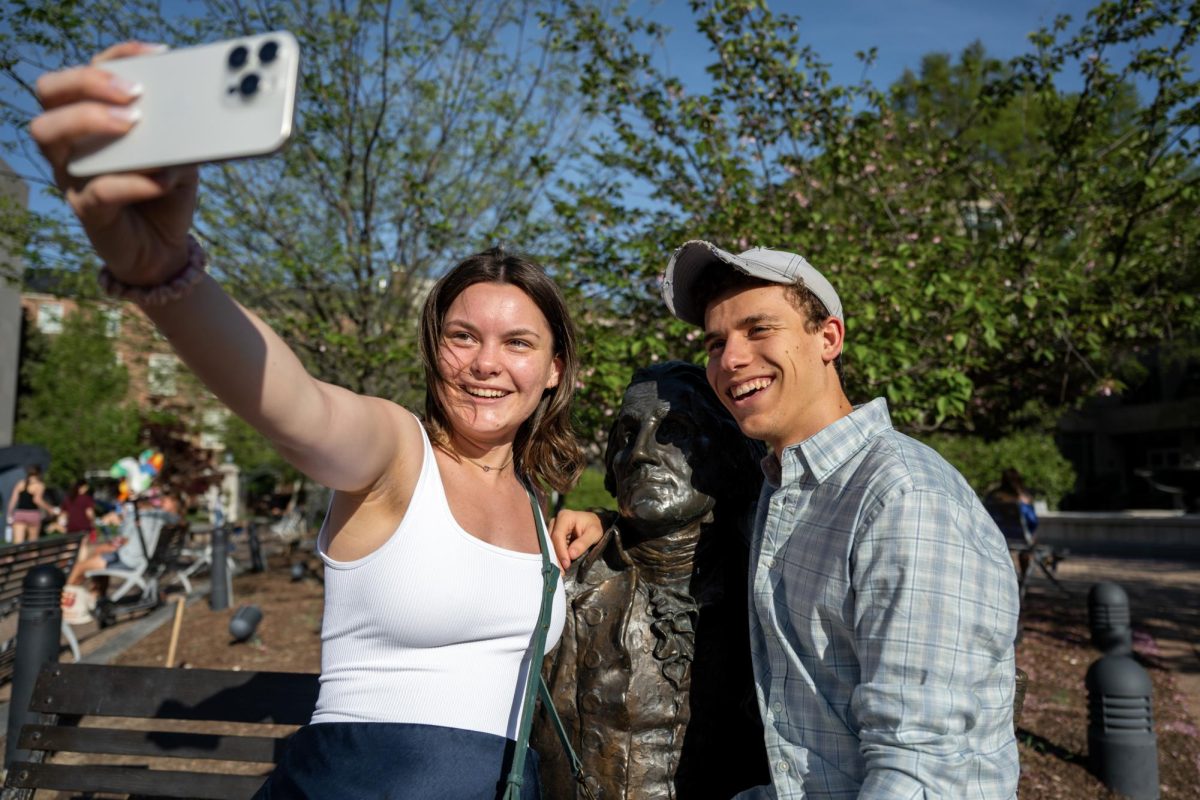
Seven years ago, 14-year-old DeOnté Rawlings was shot in the head by an off-duty police officer in Southeast D.C. Rawlings’ tragic story was retold Wednesday night to a large group of mostly students, who learned that history often repeats itself.
Seven panelists joined moderator Jennifer James, associate professor of English and director of the Africana Studies Program, in the presentation called “Framing Ferguson” to discuss the racial conflict surrounding cases like Rawlings’ – and more recently, the sociopolitical unrest in Ferguson, Mo.
Panelists tried to make the complex issues accessible to students by giving them a framework for analyzing the national discourse. Below, find some of the discussion’s highlights.
1. “Nobody should be shocked”
The interdisciplinary panel, coordinated by the English department, the Africana Studies Program and the Multicultural Student Services Center, balanced statistics about the racial makeup of St. Louis County with anecdotes about encounters with the police.
The room reached the consensus that no one at GW, or in the U.S., should be surprised by the events that unfolded in Ferguson.
Panelists like Dorothea Williams, director of the D.C. Africana Archives Project, pointed to the nation’s history of disrespecting black men and women. She compared the shooting of Michael Brown to the lynching of Fred Alexander, a black man accused of attacking a white woman in Kansas in 1901.
“Wherever a history of white supremacy is rooted, it can spring up again,” she said.
2. “Understand the players but know the rules of the game”
Gregory Squires, chair of the sociology department, said while the country has relatively straightforward solutions like demilitarizing provincial police departments, long-lasting remedies are riddled with complicated and often unfair legislation and historical context.
Problems with racial imbalance in small urban communities are commonplace nationwide, he said, though Ferguson is an outlier in its extremity. In the city of 20,000 people, 50 out of 53 police officers are white, though 67 percent of the population is black.
3. Be enlightened
More than one student asked panelists how they could help combat ignorance about black history and modern issues like mass incarceration. Panelists suggested writing letters to their representatives and teaming up with groups like Lawyers for Civil Justice, a national coalition of defense trial lawyer organizations that promote fairness and attempt to lessen litigation costs in civil cases.
But the best way to tackle these issues, they said, is to keep an open forum and honest conversation among friends and peers.
4. Re-frame the debate
Moderator Jennifer James opened the floor for questions and comments from the nearly 200 attendees.
At a particularly tense moment of debate, one audience member loudly told a panelist not to “narrow these young minds to a negative place.”
“We can all do something,” she said. Many audience members clapped in agreement.
One frustrated student said it was “disheartening” that discussions about these incidents tend to focus on how young black men became the victims.
“Why aren’t we talking about the mindset of the perpetrator?” he asked as several students snapped their fingers.



